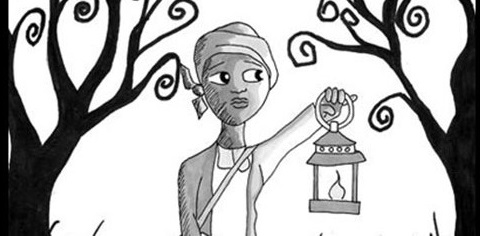“To be free is not merely to cast off one’s chains, but to live in a way that respects and enhances the freedom of others.” – Nelson Mandela
The Yoruba word, “Iteriba” has several meanings, but today let us focus on just one of the meanings, the attribute of “respect.” In this column, we’ll focus on some people who often do not receive very much respect—people whose heroism, strength, and determination is too often overlooked.
We are the heirs to the courage and ingenuity of our Underground Railroad ancestors. Sometimes, people describe them dismissively as “runaways” or “fugitive slaves” but these were self-emancipating formerly enslaved Africans. Slave revolts and escapes were the chief means whereby enslaved people could work to overthrow the unjust system of slavery. Thousands of formerly enslaved Africans freed themselves and made their way to Canada. The Government of Canada estimates that about 30,000 people of African descent, most of them formerly enslaved people, came to Canada during the height of the Underground Railroad. Many of them crossed the Detroit River and landed here in Essex County, be it in Amherstburg, Sandwich or Windsor.
Our Underground Railroad ancestors were not passively sent North by conscientious Underground Railroad organizers. They took the initiative to free themselves from slavery. They did this despite great danger. They did this without the benefits of modern technology, often without money and appropriate footwear or clothing for their travels and almost always without the advantage of literacy and maps. Rarely had they been so far away from the places they were held captive. All had been born and raised in a system that was designed to keep Black people subservient and afraid. Where systematic terrorism and torture made examples of people who didn’t follow the rules.
Here in Essex County, the formerly enslaved emigrants were eager to get directly to the business of clearing forests, farming, building roads and railroads, practicing their trades, opening shops and businesses, sending their children to school for the first time, attending classes themselves, and living their lives with passion and determination.
Their journey to freedom may have ended here but they spent the rest of their lives helping to build all of the things that we now take for granted.
Intrigued by the way they contradicted the stereotypes about what Black people were capable of achieving, the formerly enslaved Africans of Essex County were studied, observed and written about by both British and North American scholars.
One way in which we can pay respect to the memory of fellow Africans, who lived in slavery throughout the ages as well as those who freed themselves, is to ensure that no one is ever subjected to the slave trade again.
Chinua Achebe once wrote that “a man who pays respect to the great paves the way for his own greatness.” It is true that we can find immeasurable strength, power, and inspiration in the stories of our ancestors. Many readers of this newspaper will be familiar with the traditional West African symbol of the Sankofa. This symbol is based on a mythical bird with its feet firmly planted forward while its head is turned backwards. It represents the belief that wisdom from the past ensures a strong future. As we remember the giants of our past, our ancestors, our predecessors, we can and should be inspired by their heroism as we find our way forward.
Respect their memory and allow that knowledge to help you stand taller and hold your head higher every day.

Comments are closed.